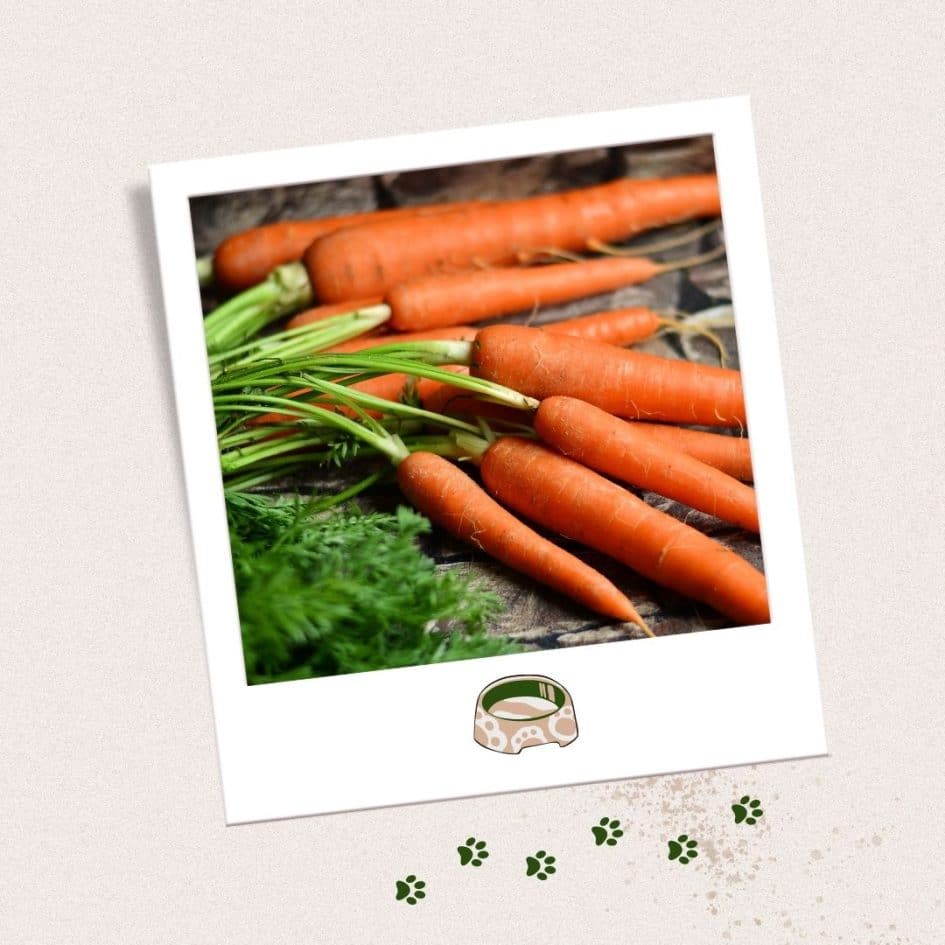

Can Dogs Eat Carrots? | A Guide on Natural Treats for Dogs
Can dogs eat carrots? Well, we have the answer here for you as well as other fruits and vegetables they can safely munch on.
Carrots are a vegetable that may be used in a variety of ways. They may be eaten on their own as a snack, paired with roast potatoes, or used to flavor stock or soup.
Carrots are good for humans because of the minerals and vitamins they contain, but can dogs eat carrots? Carrots are safe for dogs to consume. They can not only consume them, but they also like them. Experts have researched why carrots are excellent for dogs, how to prepare them, and more. Learn more here.
Can Dogs Eat Carrots?
Carrots are safe for dogs to eat, like many fruits and vegetables. In fact, dogs may eat every component of the vegetable, from the carrot to the lush green tips. They’re a healthy, organic treat, and also, most canines like the taste.
Are Carrots Beneficial to Dogs?
The body converts beta carotene into vitamin A, which is quite beneficial. Vitamin K, potassium, and other vital vitamins and minerals are present in carrots. Can canines benefit from these nutrients in the same way that people do?
Since you’re not only dependent on carrots to provide the dog with the nutrients he needs, little quantities of the vegetable are unlikely to provide significant advantages. Nonetheless, it’s a nutritious and delightful treat for dogs.
When Are Carrots Injurious to Dogs?
Carrots are a low-calorie, healthful delight when consumed in moderation. They are, nevertheless, abundant in natural sugar, much as other fruits and vegetables. This is why they are so appealing to dogs (and people). Far too much sugar, even the natural kind, may contribute to weight gain; this can lead to a variety of health issues.
Carrots must not be more than 10% of the dog’s daily calories, according to the same principles that apply to any other treat.
Although dogs aren’t normally prone to cavities, consuming too many high-sugar snacks might cause tooth rot. Unlike more abrasive dog food and treats, carrots will not clean your dog’s teeth as they eat.
Other Vegetables and Fruits That Dogs Can Eat
Apples
Apples can make really good snacks for your dogs. They are high in vitamin A and vitamin C, and fiber, making them a great treat for dogs. Since don’t have a lot of fat and protein, it makes apples the best natural treat for older dogs. The core and seeds should be removed beforehand, though. You can also put them in a freezer for a cool, refreshing snack in the summers.
Bananas
Bananas make safe, yummy snacks for dogs to eat. They are a fantastic low-calorie treat for your canine friend but should be given in moderation. Potassium, biotin, fiber, vitamins, and copper are all abundant in them. Bananas don’t have too much sodium and cholesterol, but they do have plenty of sugar, which is why you should only give them as treats and not a whole meal.
Blueberries
Yes, dogs can be given blueberries.
Blueberries are known to be rich in antioxidants, making them a superfood that can offer protection to the cells in dogs and humans. They have an amazing fiber content as well as phytochemicals. They are also the best substitute for store-bought snacks to teach your dog to catch treats in the air.
Cantaloupes
Yes, cantaloupes are fine to give to dogs. Cantaloupe is a nutrient-dense fruit that is low in calories and high in water and fiber. However, since it is heavy in sugar, it should be given in moderation, particularly with overweight or diabetic dogs.
Cranberries
Yes, cranberries are healthy for dogs to eat. It is best to give them limited amounts, but both dried and fresh cranberries can be given to dogs safely. Another consideration is whether the dog will enjoy this tangy treat. Just like you do with pretty much any treat, you should give cranberries in moderation, too, since it may cause gastrointestinal distress if given too frequently.
Cucumbers
Yes, dogs could eat cucumbers. Cucumbers are particularly beneficial to overweight dogs since they contain little to no carbs, fats, or oils, and they may even help to increase energy levels. They’re high in copper, potassium, magnesium, and biotin, as well as vitamins K, C, and B1.
Pears
Pears may be eaten by dogs. Pears have plenty of benefits since they are full of vitamins C and K, copper, and fiber. Consuming pears can also reduce the chances of a stroke by 50%. Just cut the pear into smaller pieces and discard the seeds and pits first since the seeds could have some cyanide. Avoid canned pears since they come soaked in unnaturally sweetened syrups.
Pineapple
Pineapple is a delicious, refreshing snack for dogs. Of course, you need to remove the crown and skin off before giving your dogs some slices. The vitamins, fiber, and minerals in the tropical fruit are great for dogs. It even has bromelain, which can increase protein absorption for dogs.
And there you have it! Now you know if dogs can eat carrots or not!
Discover how to create a joyful, healthy home for your pet.
Subscribe to your weekly rundown of practice, real life ideas and training tips straight to your inbox.


